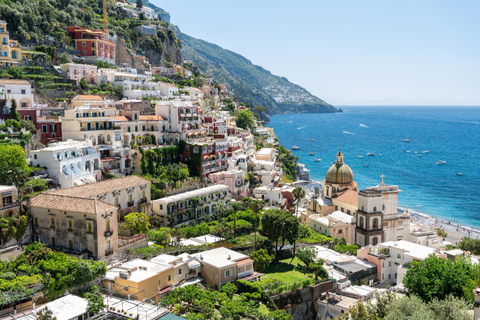Moving from
Norway to Italy

How It Works
Why choose us?
Experience is the key of success and that’s what our service providers have in abundance
5000+
50+


500+
home
improvements
Find help quick & easy!
Moovick is an all-in-one platform that provides clients with on-demand, professional Service Providers for moves and home renovation jobs in real-time for their day-to-day needs.
Car
Van
3.5T Trucks
7.5T (+) Trucks
Car (Taxi / Combo)
Perfect for small boxes, airport pick ups and luggage transfer.
Van (7-17 m3)
Great for moving studio or one bedroom apartments with basic furniture items and boxes.
3.5T Truck (20-24 m3)
Best for 1-2 bedroom apartments, small homes moves and commercials goods.
7.5T (+) Trucks
Best for 2 to 3 room apartments and upto 10 standard size pallets
Things to Know Before Moving from Norway to Italy
Italy is where dreams come true, but before moving from Norway to Italy, this exciting leap will bring a cultural shift alongside stunning scenery. Italy is a destination that captures the heart and soul of its visitors. Whether you're drawn to the romance of Florence or the vibrant canals of Venice, Italy offers a diverse range of experiences to explore.
When planning to move to a new country permanently, it is crucial to gather as much information as possible about life there to stay safe. This includes understanding the local customs, climate, and infrastructure.
This article offers the tips you need to move from Norway to Italy successfully.

FAQs
If you're moving from Norway to Italy, prepare for a new way of living. Italy's deep-rooted history and culture, spanning thousands of years, greatly influence how Italians live today. Italians are known for their friendly nature, strong family ties, and passion for food, fashion, and art—no wonder Leonardo Da Vinci was born in Italy.
The emphasis in Italy is more about living life to the full compared to Norway, where there's a work-life balance. Before moving from Norway to Italy, international movers should also know that there will also be a language barrier, one that can not be easily dissolved unless there is a willingness to learn the basic Italian language to ensure easy and credible communication with the locals.
Norwegians typically need an entry visa or a residence permit to move to Italy in the long term. The type of visa required depends on the purpose of the stay. A work visa is needed for work purposes, while a student visa is required for educational programs. Italians also issue family reunification visas for those joining relatives in Italy.
Norwegians can still visit Italy for tourism purposes for up to 90 days within 180 days without needing an entry visa in advance. Upon arrival in Italy, they must show their Norwegian passport to receive an entry stamp.
The key documents required to apply for an Italian visa include a valid Norwegian passport, proof of accommodation in Italy, proof of sufficient funds like bank statements, return flight tickets if applying for a short-stay visa, and documents relevant to the specific visa type like work contracts, admission letters, or marriage certificates.
Norwegians' Norwegian public health insurance will not cover them in Italy. When people move from Italy to Norway, they must apply for and purchase Italian health insurance or the Italian National Health Service (INHS) upon registering as residents to access Italy's public healthcare system.
A Norwegian driver's license will be valid in Italy for the first 185 days after moving there. After that time limit, Norwegians must swap their Norwegian license for an Italian one by passing the required tests to legally drive in Italy.
As an EU citizen, moving to Italy is relatively straightforward. You do not need a visa or work permit to live and work in Italy. After arriving, you simply need to register as a resident with the local authorities.
Cost of Living
Italy and Norway have significant differences in the cost of living. In Italy, the cost of living is lower compared to Norway. Daily necessities like food and clothing are more affordable in Italy. For instance, an average meal at a mid-range restaurant costs around 15 to 25 euros in Italy but can easily exceed 50 euros in Norway.
In addition, housing costs are significantly lower in Italy. Renting a one-bedroom apartment in the city centre of Rome costs around 800 to 1,000 euros per month, while a similar apartment in Oslo can go for over 1,500 euros. Due to lower taxes and fees, utilities and transportation expenses are also cheaper in Italy. Internet plans, for example, are around 30 to 50% cheaper in Italy than in Norway.
However, government subsidies make healthcare and education more affordable in Norway. Thanks to universal public health coverage, medical costs are particularly lower in Norway. Overall, Italy offers a lower cost of living for expenses like food, housing, and transportation, while Norway provides more value for services.
Beautiful scenery and natural landscapes
As stated earlier, Italians place great emphasis on art and living life to the fullest, and this is further evident in their landscapes. From the Almafi Coast to the beautiful Tuscany region to Cinque Terre ( a string of five villages) to Lake Garda, Italy has something to offer every nature lover, so if you're looking for a vacation that will take your breath away, consider an international move to Italy.
Rich Culture and History
Italy's rich history is reflected in its diverse cultural heritage, art, architecture, literature, music and cuisine. The country has a deep Christian heritage, as seen in the many churches, basilicas, and cathedrals that dot the landscape. Italian art and architecture have profoundly impacted world culture, from the sculptures of Michelangelo to the timeless designs of Brunelleschi and Palladio.
Italian literature, music, and opera have also produced some of the most significant figures in world culture, including Dante, Petrarch, da Vinci, Verdi, and Puccini. Italian cuisine is renowned worldwide for its use of fresh, high-quality ingredients and regional diversity.
Language Barrier
Moving from Norway to Italy presents several potential language barriers. While Norway and Italy have official languages that are not mutually intelligible, English is spoken widely in Norway, while proficiency in English is lower in Italy. This means that upon initially arriving in Italy, one may need help communicating even basic needs regarding housing, transportation, employment, and other matters.
While many signs and menus in Italy are printed in Italian and English, verbal communication with locals, officials, and service workers will likely be in Italian. Therefore, becoming at least conversant in Italian will be necessary to fully settle into Italian life and culture.
Taxes
International moving from Norway to Italy has another disadvantage: taxes. Taxes in Italy tend to be higher compared to Norway. This includes all forms of basic taxes, such as income taxes, social security contributions, and property taxes. It's essential to factor these differences into your budget before your move from Norway to Italy.
Bureaucratic government systems
Italy’s government system is largely bureaucratic and centralised, with power concentrated at the national level. This can lead to several disadvantages compared to Norway’s more decentralised system. One main issue is a lack of responsiveness and efficiency. With most decisions made by national agencies and ministries in Rome, the Italian government can react slowly to local needs and priorities.
Norway, in contrast, has devolved significant powers to its counties and municipalities. Local governments have more autonomy to decide policies and allocate resources based on community-specific circumstances. This localised approach is more tailored and elegant when delivering public services.
High unemployment rate
Italy has been struggling with high unemployment for several years, especially among youth and in the southern regions. In contrast, Norway has one of the lowest unemployment rates in Europe.
Overall, Italy offers a high quality of life due to a healthy Mediterranean diet, beautiful landscapes, rich culture and history, and a slower pace of life. However, issues like underdeveloped infrastructure and high unemployment impact livability.
Italy has a world-class higher education system, with many universities offering degree programs in English. The cost of tuition is generally lower compared to other European countries.
Italy has a higher unemployment rate compared to Norway. However, there are still opportunities in tourism, manufacturing, and technology. Finding a job that requires you to speak English may be easier for international movers.
If you move to Italy from another EU country, you can use your European Health Insurance Card (EHIC) for medical treatment during temporary stays. You must enrol in Italy's public health system for more extended stays.
Here are some valuable tips to make a successful move from Norway to Italy:
- Logistics: Packing, shipping, potential for selling furniture, using a moving company. Moovick offers a great marketplace where you can find companies and individuals that provide these services and more to international movers to make your move from Norway to Italy a sweet experience.
- Visas and Permits: Research residency requirements and obtain necessary documents.
- Finances: Currency exchange, setting up bank accounts, potential tax implications.
- Learning the Language: Language learning resources, such as finding an Italian language course to better communicate fluently with the locals.
Ciao Bella! Ready to Conquer Your Move to Italy? You will need to move your belongings to Italy. As a result, Moovick offers the logistical hurdles that come with international moves, a much-needed pause in the marketplace it offers. You will meet professionals who are reliable movers who will get your belongings safely from Norway to Italy.
They'll handle the packing, transportation, and all the nitty-gritty details, ensuring a smooth transition so you can focus on the exciting parts—learning the language, exploring charming sites, and indulging in endless plates of pizza.





